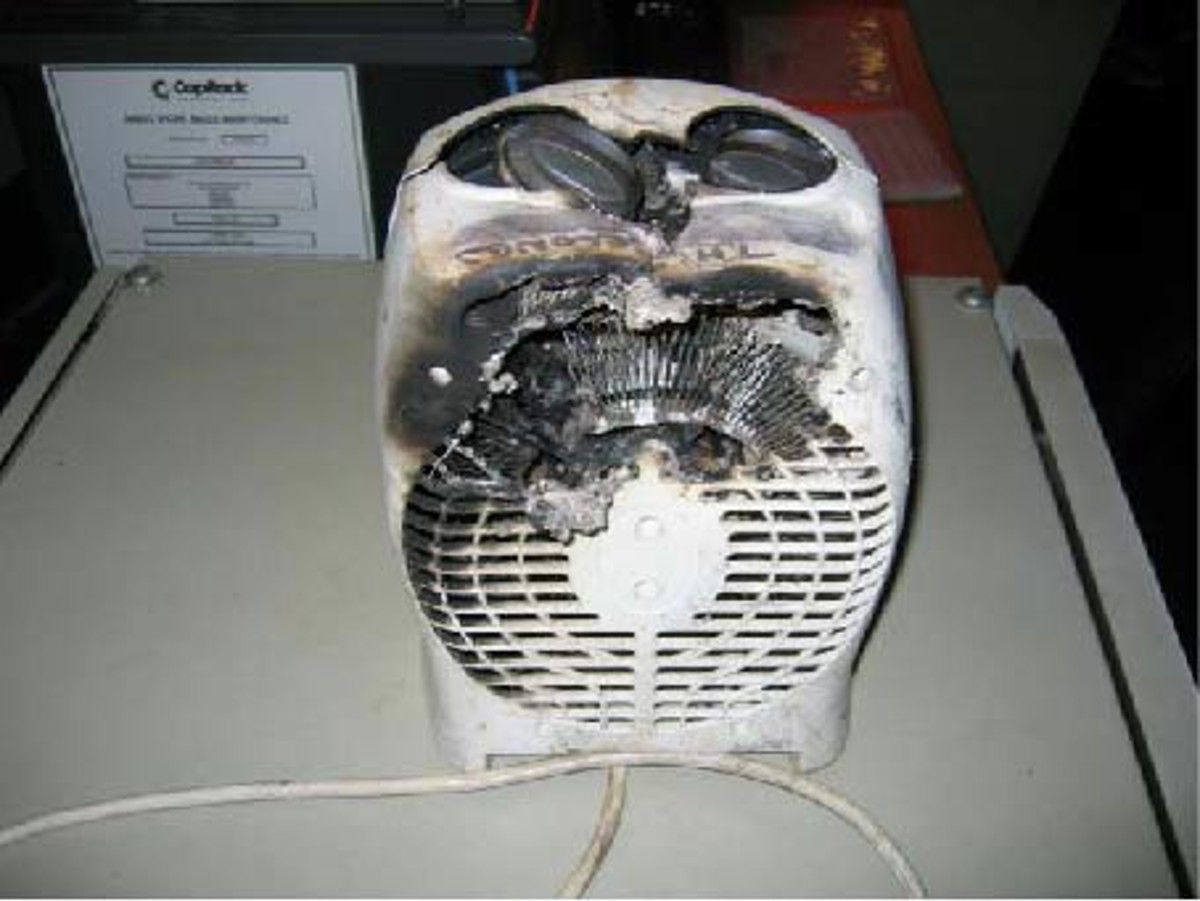Small fire caused by portable fan heater
- Safety Flash
- Published on 20 December 2007
- Generated on 12 July 2025
- IMCA SF 10/07
- 2 minute read
Jump to:
A Member has reported an incident in which a small fan heater caused a fire in a cabin.
What happened?
A crew member, on retiring to his bunk, switched on a portable electric fan heater to warm up the inside of his cabin. It appears that he then went to sleep with the heater still switched on. The crew member awoke to find smoke in the cabin and the smell of burning, and small flames were observed coming from the heater. The heater was immediately unplugged and placed in the cabin sink and the water turned on to extinguish the flames. At this point the vessel fire alarm sounded.

damaged fan heater following fire
Lessons learned
The company notes the following:
- The Code of Safe Working Practices for Merchant Seamen, Chapter 9.3.10 states that “Personal portable space heating appliances of any sort should not be used at sea and notices to this effect should be displayed.”
- This was a high potential incident which could have resulted in a major fire within the accommodation of the vessel. The company has made the following suggestions:
-
- Vessel masters should ensure that no ‘personal portable space heating appliances’ are currently in use onboard their vessel.
- Any such appliances that are discovered should be removed.
- Only approved and fully integrated means of supplying heat to cabin areas should be used.
- Vessel masters should ensure that no ‘personal portable space heating appliances’ are currently in use onboard their vessel.
IMCA Safety Flashes summarise key safety matters and incidents, allowing lessons to be more easily learnt for the benefit of the entire offshore industry.
The effectiveness of the IMCA Safety Flash system depends on the industry sharing information and so avoiding repeat incidents. Incidents are classified according to IOGP's Life Saving Rules.
All information is anonymised or sanitised, as appropriate, and warnings for graphic content included where possible.
IMCA makes every effort to ensure both the accuracy and reliability of the information shared, but is not be liable for any guidance and/or recommendation and/or statement herein contained.
The information contained in this document does not fulfil or replace any individual's or Member's legal, regulatory or other duties or obligations in respect of their operations. Individuals and Members remain solely responsible for the safe, lawful and proper conduct of their operations.
Share your safety incidents with IMCA online. Sign-up to receive Safety Flashes straight to your email.